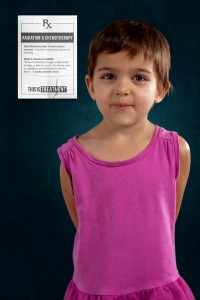Lasting Impact
Through life-saving research, education and other vital outreach, Cannonball Kids’ cancer Foundation gives new hope to families touched by pediatric cancer.
 Pediatric cancer. For many, the phrase may conjure the familiar image of a child in a wheelchair, perhaps with no hair, looking brave and hopeful about the future. Although such snapshots may at times be accurate, they also tell an incomplete story, according to Karen E. Revels, executive director of Cannonball Kids’ cancer (CKc) Foundation in Orlando.
Pediatric cancer. For many, the phrase may conjure the familiar image of a child in a wheelchair, perhaps with no hair, looking brave and hopeful about the future. Although such snapshots may at times be accurate, they also tell an incomplete story, according to Karen E. Revels, executive director of Cannonball Kids’ cancer (CKc) Foundation in Orlando.
“The big misconception is that pediatric care is rare, and that the problem has somehow been solved,” says Revels, a 23-year veteran of the nonprofit sector in Central Florida who joined CKc full time earlier this year. “It’s still the No. 1 disease killer of children. Many people don’t realize that the best drugs available were developed for adults 20 to 40 years ago, and there really haven’t been any improvements made since then.”
Seven U.S. children die of pediatric cancer every day, according to Revels—or, in one week, enough to fill two elementary school classrooms.
“One of our goals is to improve survivorship, but survivorship alone isn’t enough,” she adds. “The current treatments create horrific side effects, like hearing loss, infertility, organ failure and a high incidence of secondary cancers. We also want to change the trajectory of research so these children have access to treatments that aren’t so antiquated.”
Although CKc has grown exponentially since the nonprofit’s founding in June 2014, Orlando remains home. Area residents Michael and Melissa Wiggins started CKc as a way to honor their son, Cannon, who at 20 months old was diagnosed with stage IV high-risk neuroblastoma. In the organization’s first four years of existence, CKc has awarded $1.9 million in grants to fund innovative research—with each grant carefully vetted by the CKc Scientific Advisory Board—in the race to develop new and effective treatments that have the potential to improve a child’s quality of life.
One of the most promising treatment options is cancer immunotherapy, which stimulates the human immune system as a way to attack cancer cells in the body. Considered less toxic than standard treatments, immunotherapy can be used to treat existing tumors, as well as prevent future relapses. Also, because immunotherapy is typically offered on an outpatient basis, children can be at home with their families while receiving treatment.
For example, CKc has funded a viral immunotherapy clinical trial at the University of Alabama at Birmingham for pediatric patients with certain brain cancers. Spearheaded by Dr. Gregory Friedman, the trial uses a modified cold sore virus to kick-start the immune system’s response, which enables it to attack and destroy the tumor. Likewise, CKc is bullish about another trial at Georgia Cancer Center in Augusta, Ga., where Dr. Theodore Johnson is addressing the ways in which cancer cells essentially “hide” from the human immune system. Dr. Johnson uses a drug called indoximod to block an enzyme used by cancer cells to evade detection, thereby unleashing the immune system on the tumor.
Such trials provide hope and time, two commodities that are in short supply for children and their families who have been told, “I’m sorry, but there’s nothing else we can do.”
“Eight pediatric cancers have survivorship of less than 50 percent,” Revels says. “With some brain cancers, children are told, ‘There’s a zero chance of get- ting through this.’ Through the research trials we’ve funded, 385 options for treatment have been created—and we have a lot more to go.”
In addition to life-saving research, CKc places an emphasis on education. Recently, for example, the organization created an awareness campaign known as “This Is Treatment.” The campaign features children with pediatric cancer and shines a light on the realities these children will have to contend with for the rest of their lives.
“Most people don’t want to talk about the bad things associated with cancer, especially when it involves children,” Revels says. “With ‘This Is Treatment,’ we’re putting an image to pediatric cancer, and saying, ‘This is someone who has survived, and these are all the things that are not going well.’ These impacts are not being captured, so we see it as our job to say, ‘Look at what these kids are facing.’”
CKc intends to accelerate its forward progress. By 2022, Revels says she expects the organization to have grown “from a $1 million foundation to a $5 million foundation,” and to have educated 30,000 people throughout the United States. She believes new initiatives, such as the CKc Speakers’ Bureau, featuring individuals who have been trained to “speak passionately and authentically” about the issue of pediatric cancer, will help.
“With the growth we have planned, we’ll be able to fund more trials and also take some trials to the next level,” she adds. “We’re here to educate folks and get people to donate their time and their money, and if we can do that, ultimately we can save more lives.”
For more information on Cannonball Kids’ cancer Foundation, including details about upcoming events such as CKc Field Day (Sept. 7) and the Gold Gala (March 7, 2020), call (321) 325-5392 or visit CannonballKidscancer.org.
This article originally appeared in Orlando Family Magazine’s September 2019 issue.






